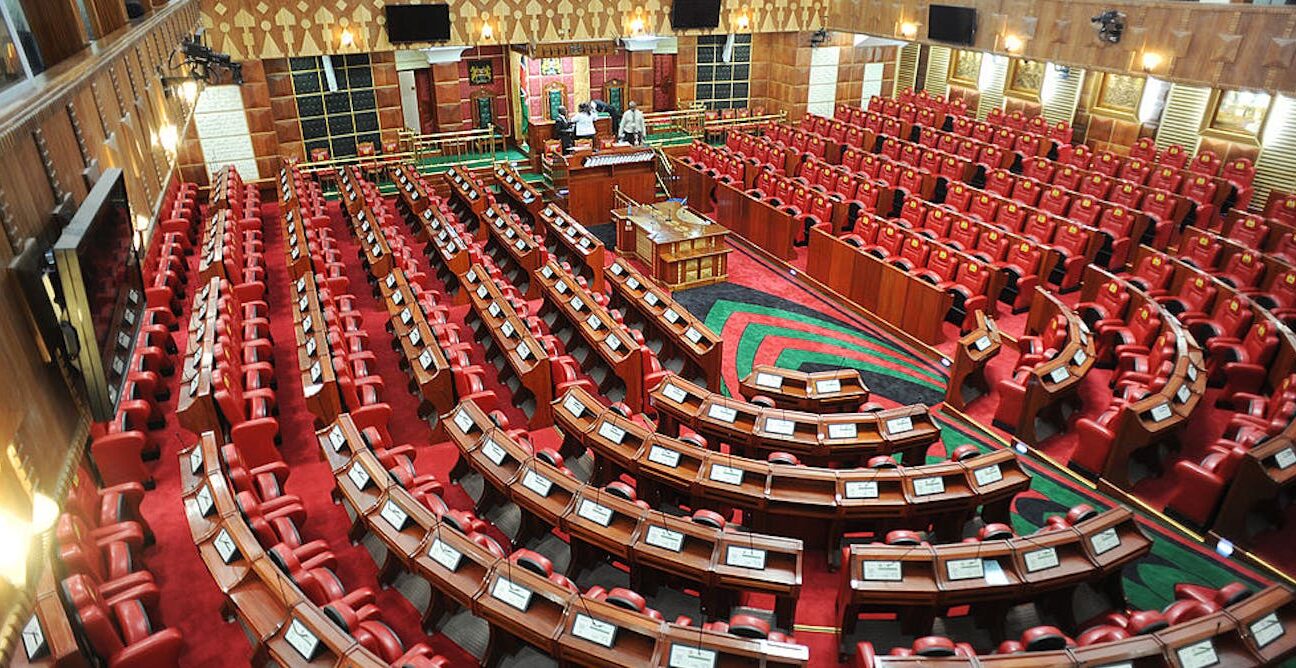In a move set to influence Kenya’s public service sector, the Members of Parliament (MPs) have officially approved the appointment of seven new members to the Salaries and Remuneration Commission (SRC). This decision marks a significant moment in Kenya’s governance, particularly in terms of public sector compensation, pay equity, and the overall management of salaries across various sectors.
The SRC plays a pivotal role in setting and reviewing the salaries and allowances of public servants, including government officials, civil servants, and other public sector workers. The new appointments are expected to have a direct impact on policy direction in Kenya, especially as the country grapples with economic challenges and the need to ensure fiscal responsibility.
In this article, we’ll break down the newly appointed members, analyze the role of the SRC, and explore what their appointment means for Kenya’s public sector employees. Additionally, we’ll consider how this shift in leadership could affect ongoing debates around salary structures and public service reform.
Overview of the Salaries and Remuneration Commission (SRC)
The Salaries and Remuneration Commission (SRC) was established under Article 230 of the Constitution of Kenya with the mandate to set and review the remuneration and benefits of public officers. The SRC’s main functions include:
- Determining and reviewing salaries, allowances, and benefits of all public officers.
- Advising the national and county governments on matters relating to salaries and remuneration policies.
- Conducting job evaluations to ensure that public service pay is equitable and fair across various sectors.
- Ensuring that public service remuneration is fiscally sustainable while also providing an incentive for public service excellence.
The commission is key to managing public finances by recommending appropriate salary structures and ensuring that taxpayer funds are spent prudently. By approving new members, the National Assembly is sending a clear message about the future direction of salary reviews and public service reforms in Kenya.
Who Are the Newly Appointed Members of the SRC?
The seven members approved by the Kenya Parliament are distinguished professionals with varied backgrounds, representing diverse sectors of the Kenyan society. Here’s a closer look at each of the members:
1. Mr. Sammy Chepkwony – Chairperson
As the newly appointed Chairperson of the SRC, Mr. Sammy Chepkwony will lead the commission in its vital role of managing public service compensation. Chepkwony’s leadership will be crucial in steering the commission through complex issues like salary harmonization, pay equity, and ensuring fiscal discipline in public service spending.
2. Maj. Gen. (Rtd) Martin Kizito Ong’onyi – Member
Maj. Gen. (Rtd) Martin Kizito Ong’onyi comes to the commission as a member nominated by the Defence Council. With his military background, Ong’onyi is expected to offer a perspective focused on the needs and remuneration of defense personnel, a key sector often involved in complex pay negotiations. His expertise in strategic defense management could also play a role in balancing the needs of defense personnel with broader fiscal constraints.
3. Mr. Mohamed Aden Abdi – Member
Mr. Mohamed Aden Abdi has been nominated by the Senate on behalf of County Governments. His position highlights the importance of addressing the unique challenges faced by county governments in terms of public service remuneration. Abdi’s experience in county-level governance will be invaluable as he works to ensure equitable pay across Kenya’s 47 counties, addressing the disparities between different regions.
4. Ms. Jane Gatakaa Njage – Member
Representing the Teachers Service Commission (TSC), Ms. Jane Gatakaa Njage will bring her expertise in the education sector to the SRC. Teachers, being one of the largest groups of public servants, have historically faced challenges in securing competitive remuneration. Njage’s appointment signals a continued focus on improving the welfare of educators and aligning their pay with the demands of their profession.
5. Dr. Gilda Odera – Member
Nominated by an umbrella body representing employers, Dr. Gilda Odera brings a wealth of experience from the private sector. Her expertise in human resources, labor relations, and organizational management will be crucial in ensuring that public service salaries are not only equitable but also aligned with market realities.
6. Dr. Geoffrey Apollo Omondi – Member
As a nominee from an umbrella body representing trade unions, Dr. Geoffrey Apollo Omondi will advocate for workers’ rights, ensuring that the interests of public sector employees, especially unionized groups, are taken into account. Omondi’s appointment underscores the need for labor unions to have a voice in shaping compensation policies, especially given the increasing demands for public service reform.
7. Mr. Leonid Ashindu – Member
Finally, Mr. Leonid Ashindu, nominated by a joint forum of professional bodies, is set to represent the interests of professionals across various fields. His background in professional standards and organizational development will provide a balanced view, ensuring that the SRC remains grounded in the reality of Kenya’s professional sector.
Key Functions of the SRC Under the New Appointments
With the new appointments in place, the SRC is poised to undertake several critical functions that will shape the future of public sector compensation. Here are some of the key areas where the new team will likely focus:
1. Salary Reviews and Recommendations
The SRC is tasked with recommending salaries for public servants, a highly debated and sensitive issue in Kenya. Under the new leadership, the commission will review salary scales to ensure they reflect the current economic conditions, inflation rates, and the cost of living. This is particularly important as Kenya faces inflationary pressures and budgetary constraints.
2. Ensuring Pay Equity Across Sectors
Pay equity remains a significant issue in Kenya, with disparities between different sectors, counties, and regions. The SRC is expected to continue working towards ensuring that pay levels are fair and competitive across the public sector, from the national government to county-level positions.
3. Fiscal Responsibility
The SRC is charged with advising the government on sustainable pay practices. This involves ensuring that the government’s payroll is within budgetary limits while also attracting and retaining skilled public servants. The new members, with their varied backgrounds, will need to balance fiscal constraints with the need to provide competitive salaries.
4. Public Service Reforms
As Kenya continues to implement public service reforms, the SRC will play a key role in shaping these changes. This includes advising on policies related to performance management, job evaluations, and organizational restructuring, all of which can have an impact on salary and benefit structures.
5. Regional and Sectoral Pay Differences
Addressing disparities in pay between regions and sectors remains a priority for the SRC. With members like Mr. Mohamed Aden Abdi, nominated by the Senate, there will likely be a stronger focus on ensuring that public servants in rural and marginalized areas are not left behind in terms of remuneration.
Impact of the SRC Appointments on Public Service Compensation
The appointment of these seven new members is expected to have several notable impacts on public service compensation in Kenya:
- More Inclusive Decision Making: With representatives from a variety of sectors—defense, education, trade unions, professional bodies, and county governments—the SRC is likely to adopt a more inclusive approach to salary and benefit decisions.
- Focusing on Fiscal Prudence: The commission will need to be mindful of the economic challenges facing the country, including debt servicing and inflation. Balancing these concerns with the need for fair pay will be a delicate task.
- Strengthened Stakeholder Engagement: The diverse composition of the SRC will likely lead to better engagement with various stakeholders, including government departments, trade unions, and the private sector, ensuring that all voices are heard in the compensation conversation.
- Long-term Public Service Reforms: The new team will have the chance to build upon previous reforms and address longstanding issues in the public service, such as delayed payments and unequal pay across different regions.
What Lies Ahead for the SRC and Public Service Salaries?
The approval of the seven new members to the Salaries and Remuneration Commission (SRC) is a critical development in Kenya’s governance. These appointments signal a renewed focus on ensuring that public servants are fairly compensated, while also keeping the government’s fiscal health intact. As the new leadership takes charge, it will be interesting to see how they navigate the complexities of salary reviews, pay equity, and public service reforms.
For Kenyan business professionals, public service employees, and policymakers, the actions of the SRC will continue to influence salary negotiations, job satisfaction, and overall governance. As we move forward, it will be important to monitor how the commission balances the competing demands of fair compensation, fiscal sustainability, and public service excellence.





